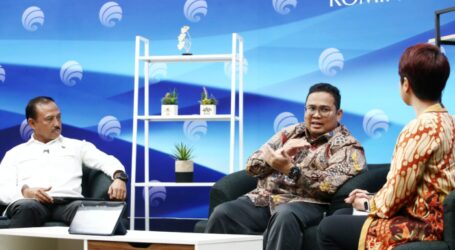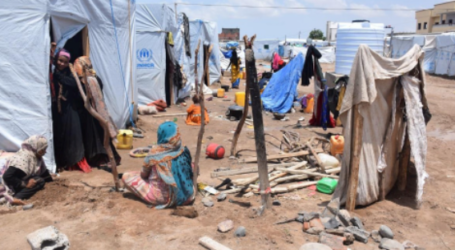Election Supervisory Agency Takes Action on 63 Cases of Criminal Violations

Jakarta, MINA – Chairman of the Indonesian General Election Supervisory Agency (Bawaslu), Rahmat Bagja, emphasized that criminal election violations will still be followed up seriously, even though they have special characteristics that do not follow the Criminal Procedure Code.
Rahmat revealed Bawaslu data from the early stages of the 2024 elections until now there were 266 cases of violations of the code of ethics for organizing elections. Apart from violations of the code of ethics, there were also 140 cases of other legal violations recorded.
“This includes administrative violations which have been proven in 71 cases and criminal violations in 63 cases. “Almost half of these criminal cases have been proven, showing that there is an urgent need for more effective law enforcement in elections,” he said in the Forum Merdeka Barat 9 (FMB9) Dialogue with the theme ‘Supervising the Recapitulation of Election Vote Counting’ on Wednesday.
In terms of reporting, he continued, there were around 1,500 reports received, in addition to 700 findings by Bawaslu. According to him, the process of handling cases based on reports and findings is a challenge for Bawaslu. However, Rahmat emphasized that Bawaslu is committed to following up on every case that has sufficient evidence, including cases that go viral on social media or those that don’t.
This is because the handling of this case reflects an effort to maintain election integrity and ensure that any violations receive action in accordance with applicable law.
On the other hand, he also admitted that opportunities for violations always exist, considering the human factors involved in democratic parties on this very large scale. However, what is most important for Bawaslu is how these violations can affect the election results.
“Every vote at the polling place (TPS) and every vote in the recapitulation must have the same weight in determining the final result,” he stressed.
Election Disputes
In the history of elections in Indonesia, Rahmat said that disputes over legislative elections (Pileg) always dominate when compared to disputes involving presidential elections (Pilpres).
In particular, he also highlighted the case of changes to the Permanent Voter List (DPT) in Kuala Lumpur, Malaysia. He explained that there were indications that violations were committed without following the procedures established by law.
In Kuala Lumpur, the number of verified voters is only 68 thousand out of a total of around 440 thousand Indonesian citizens. This case also became a starting point that revealed problems with recording Indonesian citizens abroad, requiring an in-depth evaluation of the postal methods used.
“In fact, President Joko Widodo once emphasized that the General Election Commission (KPU) must not ignore administrative aspects which are an important foundation in holding elections,” he stressed.
Since 2008, continued Rahmat, Bawaslu has overseen the election process and succeeded in bringing election crimes to court, including the case in Kuala Lumpur. However, for cases abroad, the complexity of the crime adds to the complexity in handling the case in question.
Therefore, he admitted that he felt proud to be able to bring the case in Kuala Lumpur to court.
“In the history of election supervision since 2008, election crimes abroad can be brought to court, ‘break the egg’ now!” he said proudly. (T/RE1/P2)
Mi’raj News Agency (MINA)








